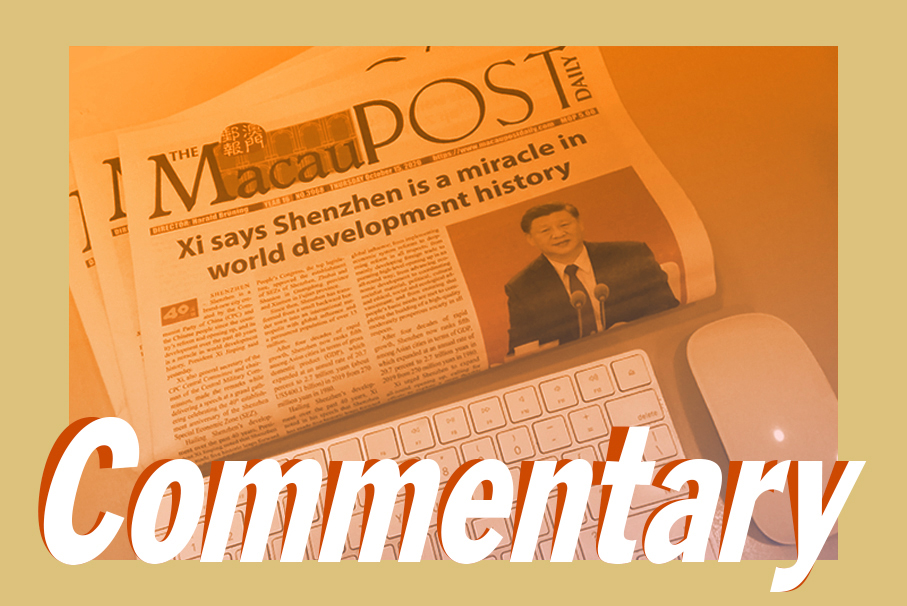Interview
At the invitation of President Xi Jinping, Brazilian President Luiz Inácio Lula da Silva, who arrived in Shanghai on Wednesday, is visiting China until tomorrow.
He is leading a large delegation of over 200 members to visit Shanghai and Beijing.
“President Lula is visiting the important trade partners of Brazil and has the major Brazilian companies to visit China with him,” Paulo Feldmann, professor of Economics at the University of São Paulo and author of “Management in Latin America: Threats and Opportunities in the Globalized World”, says.
At the end of 2022, Feldmann joined a team to discuss transitioning from the old government to the new one. He shared insights into President Lula’s visit to China in an exclusive interview with GDToday recently.

Image courtesy of GD Today
Lula to boost China-Brazil cooperation for development
China is the fourth country that Lula has visited since taking office in January, following Argentina, Uruguay, and the United States, and also the first major country he has visited outside of the Americas. “Brazil is a neutral country in terms of foreign policy, and it wants to improve relations with China,” Feldmann said.
Feldmann pointed out that China is Brazil’s important trade, commerce, export, and import partner. Lula’s visit to China aims to expand markets for the agricultural powerhouse as well as to bring advanced technologies from the huge country, which is a rapidly developing, diverse nation with a wide range of industries.
Feldmann elaborated on his vision for Brazil’s re-industrialization. He said he believes that Brazil urgently needs to adjust its industrial structure. Statistics show that Brazil's manufacturing industry accounted for 30 percent of Brazil's gross domestic product (GDP) in the 1980s. However, by the end of 2021, the share of manufacturing in Brazil's GDP had fallen to 9%.
“Brazil has lost its manufacturing industry and needs to recover it. China could give us great support,” Feldmann said.
BRI will bring new opportunities to South American countries
As a part of President Xi’s global development concept, the Belt and Road Initiative (BRI) has received strong support from all over the world. However, Brazil has not yet joined the BRI, so attention is now focused on whether President Lula will do so this time.
“Surely, Brazil needs to participate in the BRI”, said Feldmann. In his view, the BRI is a great opportunity for Brazil’s infrastructure. “Brazil has very poor transport, and we don’t have good trains. The other problem that we have is related to electricity,” he said, adding that more cooperation is expected in areas related to sustainability and climate change, such as electric cars.
In addition, Feldmann believes that Brazil can improve the quality of education by taking advantage of the BRI, and providing talent for the development of high-value-added industries.
He pointed out that the State Grid Corporation of China and China Three Gorges Corporation have undertaken a number of hydropower projects in Brazil, which wasan example of China-Brazil cooperation.
Over the past decade, the BRI has become a popular international platform for international cooperation, covering two-thirds of the world’s countries and regionsand one-third of international organizations. “The BRI should be an initiative in all of South America,” he said.
BRICS could be the most important platform for emerging countries
On March 29, China and Brazil reached an agreement to trade in their own currencies, instead of using the US dollar as an intermediary. Feldmann regards it as a very positive deal, “because it will reduce costs for Brazilian and Chinese traders.”
“China should be the most important partner of Brazil. But when I mentioned partnership, I mention that China can support the development of Brazil. It’s different from the partnership that we have with the US,” Feldmann said, adding that “the US only has an interest in the Brazilian market. So the Brazil-US partnership is dedicated to American companies.”
As for Lula, who actively promoted the establishment and cooperation of the BRICS organization during his first term, BRICS issues are also considered one of the highlights of his trip.
In addition to Argentina and Iran, Mexico, Algeria, Saudi Arabia, Türkiye and Egypt have also been preparing to apply for BRICS membership recently. In Feldmann's view, as an important organization of emerging economies, BRICS countries should continue to expand, deepen South-South cooperation, and achieve mutual benefit and win-win results.
Feldmann highly praised the role of BRICS cooperation. “BRICS, in my opinion, could be the most important platform for emerging countries. It’s very important to have other countries joining BRICS, like Mexico, Argentina, and many Asian countries,” he said.
He noted that the BRICS could become a driving force for promoting balanced economic development. “The BRICS could aid developing nations in requesting greater cooperation from developed nations.”
Feldmann also underlined that BRICS countries should strengthen cooperation on global governance issues and speak out for emerging countries on such topics as trade, education, and climate change.
- Courtesy of GD Today (minor edits by The Macau Post Daily)








